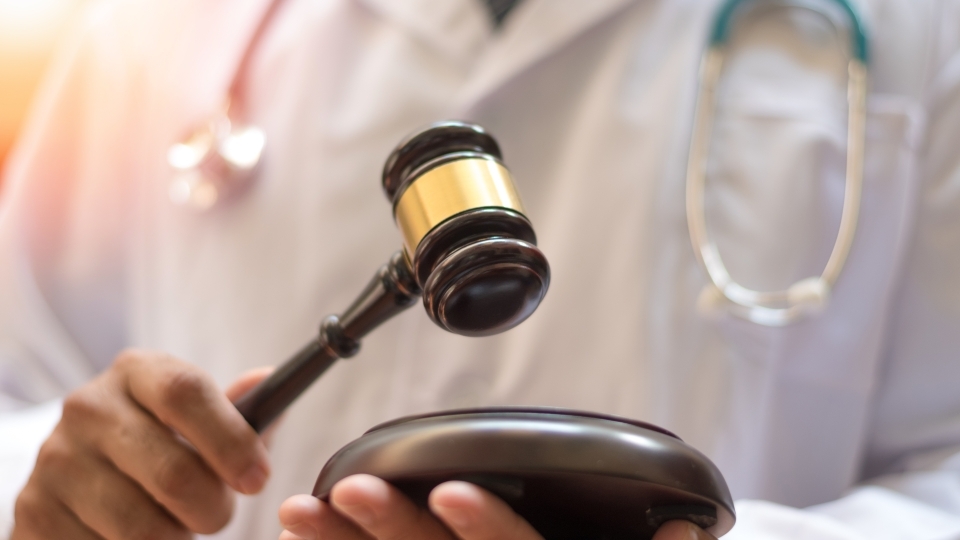Ethics and Honor Codes: A Whistleblower’s Difficult Path
October 3, 2024
- Author
- Mary Elizabeth DeAngelis

Carl Elliott ’83 thought he’d be a doctor like his father. Medical school changed those plans. He didn’t object to practices that seemed unethical, such as students giving pelvic exams to unconscious patients who hadn’t given consent. He became disillusioned.
“Medical training was turning me into a terrible human being,” Elliott said.
After completing medical school, he turned to academia and earned a doctoral degree in philosophy.
As a faculty member for the University of Minnesota’s Center for Bioethics, Elliott was horrified to learn about the violent suicide of a mentally ill man whose condition worsened as the result of a pharmaceutical drug trial. He believed the man didn’t have the mental capacity needed when he consented to participate in the study. The man’s mother had objected to his being in the study, and told researchers his condition was deteriorating, but they continued.
Thus began Elliott’s often lonely and sometimes obsessive path as a whistleblower.
He angered administrators, lost friends and faced multiple threats. It took years before a state investigation validated his claims of extensive wrongdoing.
Elliott writes briefly about his experiences but focuses more on other medical whistleblowers in his new book, The Occasional Human Sacrifice. We caught up with him for a conversation that spanned from the victims of medical research to how his time at Davidson College helped formulate his views on honor and ethics.
You say that medical research is conducted on an honor code system. What’s the flaw in that system?
An honor code requires people who witness wrongdoing to report it. In medical research, that rarely happens. And in the rare cases when it does, there are no real consequences for those who have broken the rules. In fact, in many of the most notorious research scandals, the researchers behind the abuses were actually rewarded with academic honors and prizes.
You never thought of yourself as a rebel or out to seek a fight, and yet you spent years doing that. What were some of the hardest elements of that?
Nobody wants to blow the whistle on wrongdoing because they know that it will make you toxic. You become radioactive. Nobody wants to be anywhere near you. Even colleagues who might be secretly sympathetic avoid you, for fear that they will become radioactive, too. And that can be really lonely.
I didn't mind fighting university administrators. I expected that. What I didn't anticipate was fighting my colleagues. I genuinely thought that bioethicists would stand with the victims of research abuse, not with those in power. I was wrong about that.
Why did you write this book?
The view of whistleblowers that has emerged in popular culture is a version of the David and Goliath story: the righteous whistleblower defeats the powerful organization. But in real life, Goliath usually wins. I wanted to write a book that was honest about what awaits whistleblowers when they speak up.
I know that sounds bleak. Yet something powerful happens when you, as a reader, find a story that diagnoses the predicament that you are in, even if the prognosis looks dire. I wanted to write a book that spoke to those people.
Have you been approached by potential whistleblowers since this book was published?
Yes, I have, and also from people who recognize something of themselves in the book. Which is exactly what I was hoping for.
What advice would you offer potential whistleblowers?
Find a good attorney. Save all documents. And above all, don't try to do it alone. The key to survival as a whistleblower is solidarity. Remember, every whistleblower is an amateur playing against professionals.
Is there a common trait you found in whistleblowers?
I couldn't see any personality traits that these whistleblowers shared. They are very different kinds of people. What they did share was a deep sense of moral commitment. No one I talked to had anything to gain by blowing the whistle and a lot to lose. Yet they did it anyway.
How did Davidson influence your path as a whistle blower?
The sheer existence of Davidson's honor code seems like a miracle to me. If I hadn't experienced it myself, I probably wouldn't have believed it could possibly work. Yet it does. This is something that academic medical researchers should study and learn from.



